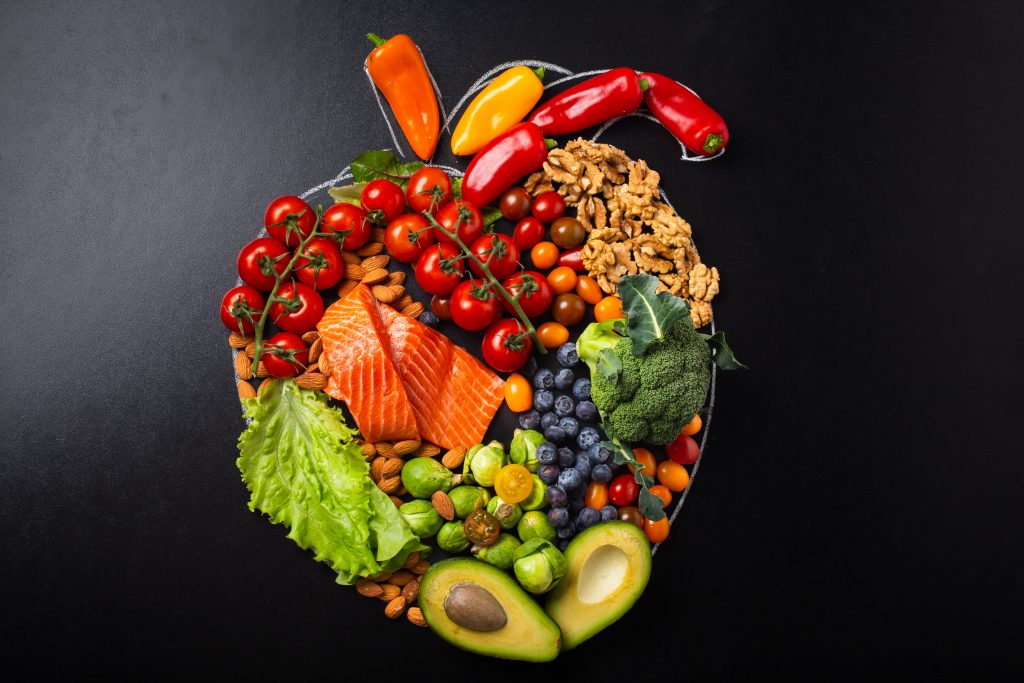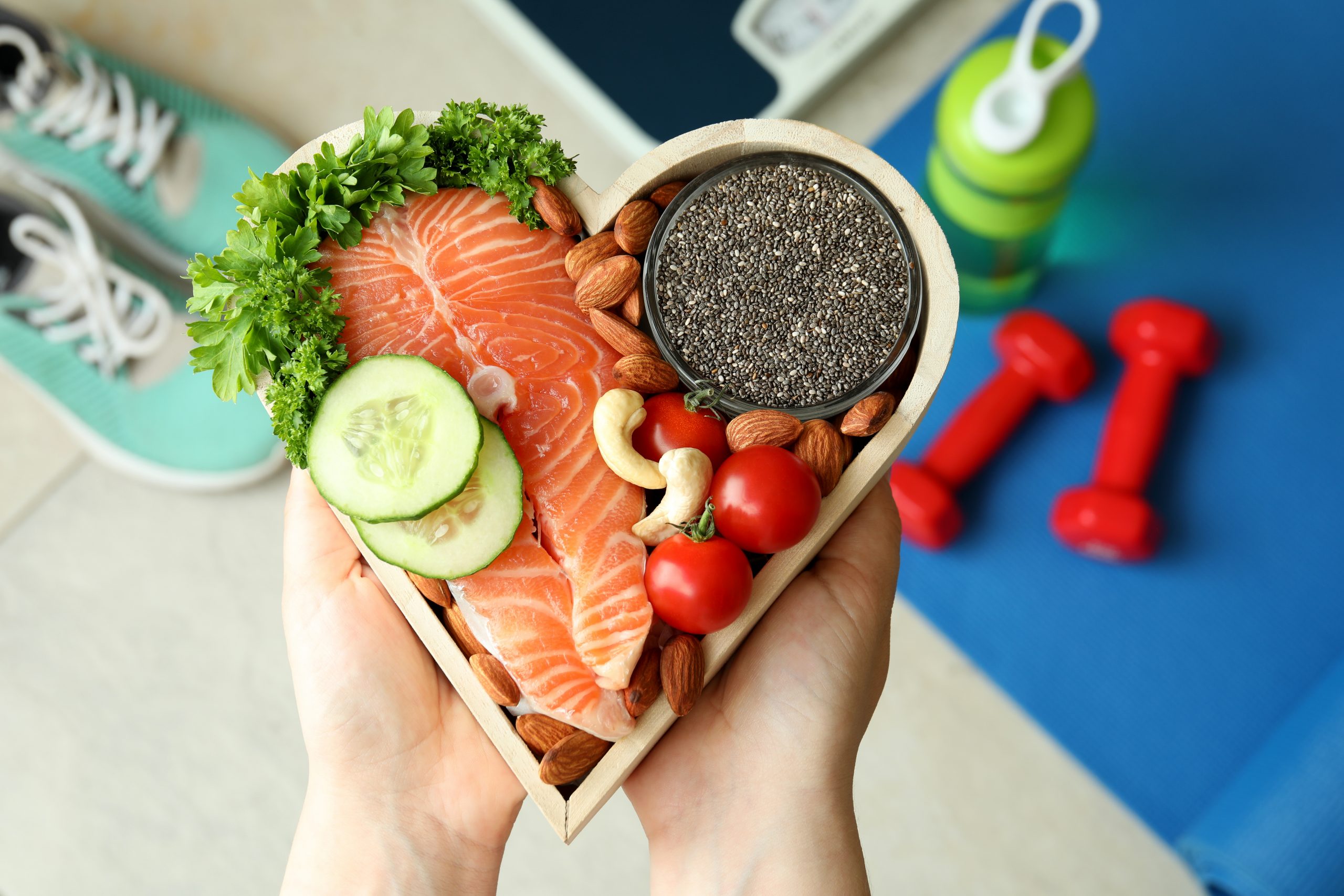Eating healthy is essential for keeping your heart strong. Unfortunately, it’s not always easy to know which foods are good for you and which ones could be harming your health. Luckily, there are some key foods that can help support a healthy heart. In this article, we’ll discuss the best foods for a healthy heart and how to incorporate them into your diet. With these tips in mind, you’ll be able to make smart food choices that will keep your heart beating strong!
Foods that Help Support a Healthy Heart
When it comes to heart health, there are certain foods you should definitely be including in your diet. Eating fresh fruits and vegetables is a great way to get your daily dose of vitamins and minerals, which can help reduce the risk of heart disease. Omega-3 fatty acids found in fatty fish such as salmon, mackerel, and sardines are also beneficial for keeping your blood vessels healthy and reducing inflammation. Dairy products like milk, yogurt, cheese, and cottage cheese are excellent sources of calcium which can help lower blood pressure. Eating whole grains like oats, barley and quinoa can also help to control cholesterol levels. Finally, nuts provide healthy fats that can promote weight loss and reduce the risk of heart attacks.
By incorporating these foods into your diet regularly you will be helping to create a diet rich in nutrients that can keep your heart strong and healthy. Don’t forget to read food labels when shopping so you know what’s really in the food you’re eating! With a balanced diet full of these nutritious items along with regular exercise, you will be on track for maintaining a healthy heart.
Omega-3 Fatty Acids
Omega-3 fatty acids are essential for maintaining a healthy heart. These beneficial fats play an important role in keeping blood vessels flexible and reducing inflammation, making them ideal for reducing the risk of cardiovascular disease. They can also help to reduce LDL cholesterol levels, lower your blood pressure and improve blood flow throughout your body.
You can get Omega-3 fatty acids from fatty fish such as salmon, mackerel and sardines, as well as nuts like walnuts and flaxseeds. Eating these foods regularly can help you maintain a healthy heart and keep your cardiovascular system strong. Adding Omega-3 fatty acids to your diet is an easy way to support your heart health, so make sure you’re getting enough of these beneficial fats today!
Dairy Products
Dairy products can be an important part of a heart-healthy diet. Milk, cheese and yogurt are packed with beneficial nutrients like calcium, potassium and magnesium, which help to reduce the risk of coronary heart disease. Dairy products also contain Vitamin D, which helps regulate blood pressure and can improve your heart’s ability to pump blood throughout your body.
In addition to helping protect against cardiovascular disease, dairy products may also help you maintain a healthy weight and keep your blood sugars under control. Eating low-fat varieties of these dairy products can help ensure you get the most benefit while avoiding excess calories or saturated fat. Try incorporating more low-fat dairy into your meals for a tasty way to look after your heart!
Fresh Fruit and Vegetables
Fresh fruits and vegetables are an essential part of a heart-healthy diet. Fruits and vegetables are rich in vitamins, minerals, fiber, and antioxidants that can help protect against heart disease. Eating a variety of different colors of fruits and vegetables will ensure you get all the nutrients you need for optimal health. Fresh produce is also low in calories and fat, which can help reduce your risk of weight gain, high cholesterol levels, and other risk factors associated with heart disease.
For maximum benefit, try to buy locally grown produce when possible to maximize nutritional value. Additionally, make sure to read food labels for added sugars or sodium when selecting canned or frozen items. Eating fresh fruit and vegetables on a regular basis can be an easy way to take care of your heart!
Whole Grains and Legumes
Whole grains and legumes are an important part of a heart-healthy diet. Whole grains provide fiber, vitamins, minerals, and essential fatty acids that help keep your heart healthy. Studies have shown that consuming whole grains can reduce the risk of coronary heart disease by up to 25 percent. Legumes like beans, lentils, and peas are also rich in fiber and other nutrients that help protect against cardiovascular disease.
They contain high amounts of protein as well as complex carbohydrates which can help regulate blood sugar levels and lower cholesterol levels. Eating a variety of whole grains and legumes on a regular basis is an easy way to keep your heart healthy. Try adding brown rice or quinoa to salads, stir-fries, or soups for added texture and flavor. Or add cooked beans to tacos or burritos for an extra boost of nutrition!
Nuts, Seeds, and Beans
Nuts, seeds, and beans are three of the healthiest foods you can eat for a healthy heart. Eating a handful of nuts every day can help reduce your risk of heart disease by up to 20%. Nuts are rich in omega-3 fatty acids and other healthy fats that can help reduce inflammation and improve blood flow. Seeds like chia, flax, and hemp are also high in omega-3s and offer plenty of vitamins, minerals, and fiber. They can help keep your cholesterol levels within a healthy range.
Beans are an excellent source of protein and complex carbohydrates that regulate blood sugar levels while helping to lower cholesterol. Try eating a variety of different types of nuts, seeds, and beans each day for maximum nutrition benefits. Sprinkle some roasted pumpkin or sunflower seeds on top of salads or add cooked lentils to soups or stews. You can even make your own trail mix with nuts, seeds, dried fruit, and dark chocolate chips for a tasty snack!
Lean Proteins such as Chicken, Fish, or Turkey
Lean proteins such as chicken, fish, and turkey are essential for a healthy heart. Chicken is a great source of lean protein that helps to maintain healthy weight and blood pressure levels. Fish like salmon, tuna, and mackerel are high in omega-3 fatty acids which can reduce inflammation and improve heart health. Turkey is another lean protein that contains high amounts of niacin, a B vitamin that helps lower LDL cholesterol levels.
Eating lean proteins regularly can help you stay full longer while keeping your calorie intake in check. Try baking or grilling chicken breasts with olive oil and herbs for a tasty dinner entrée. Add canned tuna to salads or sandwiches for an easy lunch option. Or try marinating turkey tenderloins in your favorite spices before grilling or roasting them in the oven. Lean proteins provide plenty of great nutrition benefits while helping to keep your heart healthy.
Fatty Fish such as Salmon or Tuna
Fatty fish, like salmon and tuna, are a great way to boost your heart health. These types of fish are rich in omega-3 fatty acids, which can reduce inflammation throughout the body and improve overall heart health. Eating fatty fish regularly can help lower LDL cholesterol levels and reduce the risk of cardiovascular disease. Omega-3 fatty acids also help promote healthy blood flow, which helps keep your heart rate regular and improves blood sugar levels.
Salmon is an excellent source of omega-3 fatty acids and is full of vitamins B6 and B12, both of which help protect against coronary heart disease. Eating fresh salmon once or twice a week can provide a great boost to your diet. Tuna is another excellent option for getting your dose of omega-3s and provides plenty of protein as well. Canned tuna makes for a great lunch or snack option when paired with whole grain crackers or on top of a bed of greens.
When shopping for fatty fish, look for wild caught varieties instead of farm raised whenever possible. Be sure to check food labels for any added ingredients such as salt that could add unnecessary calories to your meal plan. Take advantage of the many benefits that come with eating fatty fish by adding them to your weekly meal plan today!
Olive Oil and Avocado Oil
Olive and avocado oil are both incredibly beneficial for your heart health. Olive oil is a great source of monounsaturated fats, which can reduce bad cholesterol levels in the body and help prevent heart disease. It’s also rich in antioxidants that can help protect cells from free radical damage and reduce inflammation throughout the body. Avocado oil is also an excellent source of healthy fats, including oleic acid and polyunsaturated fatty acids. These types of fats can help keep blood vessels flexible and strong, reducing the risk for stroke or heart attack.
Both olive and avocado oil are great options for cooking as they have a high smoke point, meaning they don’t break down as easily when exposed to higher temperatures. You can use them for sautéing vegetables, baking fish, roasting potatoes, and more! They’re also tasty additions to salads or pastas, giving dishes a delicious boost of flavor while providing plenty of heart-healthy benefits. Try adding either one to your weekly meal plan to reap the rewards!

Eating Habits for Heart Health
Eating a healthy diet is one of the best things you can do to support your heart health. Eating habits such as limiting unhealthy fats, eating plenty of fresh fruits and vegetables, and reducing processed foods can help keep your heart strong and healthy. Eating fish such as salmon or tuna twice per week is also recommended, as they are rich in omega-3 fatty acids which can reduce cholesterol levels and have anti-inflammatory properties.
Dairy products like yogurt or cheese are also beneficial for heart health due to their calcium content, which helps maintain blood pressure levels. Additionally, it’s important to watch portion sizes and avoid overeating, as this can lead to weight gain which can increase the risk of developing heart disease. Taking time to create a meal plan each week that includes all of these components is a great way to ensure you’re getting all the nutrients you need for a healthy heart.
Eating Regular Meals with Fewer Processed Foods
Eating regular meals with fewer processed foods is an important part of maintaining good heart health. Eating a balanced diet that includes plenty of fresh fruits and vegetables, lean proteins, and whole grains will provide your body with essential vitamins, minerals, and fiber for optimal cardiovascular health.
Additionally, avoiding processed snacks and substituting them for healthier options such as nuts or seeds can help reduce the amount of unhealthy fats you consume. Lastly, it’s important to pay attention to food labels when shopping so you can better understand what’s in the food you’re consuming. This way, you’ll be able to make the best decisions when it comes to eating healthy foods that are beneficial for your heart. Doing all these things can help reduce the risk of developing heart disease and keep your heart condition at its best.
Reading Food Labels to Identify Unhealthy Ingredients
Reading food labels can be a great tool to help you identify unhealthy ingredients. Paying attention to the ingredients list on packaged foods is one of the best ways to make sure that you are not consuming too much unhealthy fat, sugar, or sodium. Some words on food labels that indicate an ingredient may be unhealthy include “hydrogenated,” “partially hydrogenated,” and “high fructose corn syrup.” These are all types of fats or sugars that have been processed and should be avoided whenever possible.
Additionally, it’s important to pay attention to the amount of sodium in packaged foods as this can contribute to higher blood pressure and other health issues. Being aware of these terms on food labels will help you stay away from unhealthy ingredients and keep your heart healthy.
Limiting Sugar Intake
Reducing sugar consumption is crucial for a healthy heart. Excessive sugar intake can result in weight gain, high blood pressure, and other cardiovascular threats. The suggested daily limit for added sugars is no more than 10% of your total calorie intake. This means that if you are consuming 2,000 calories per day, then 200 should come from added sugars.
You should also be aware of “hidden” sources of sugar such as cereals, breads, sauces, and even some types of yogurt. To ensure that you stay within your daily limits, it’s important to read food labels closely and opt for foods with lower amounts of sugar whenever possible. Additionally, try replacing sugary snacks with fresh fruit or unsweetened alternatives such as plain yogurt or nuts for a healthier heart-friendly snack option.
Choosing Low-Sodium Seasonings
When it comes to keeping your heart healthy, choosing the right seasonings can make all the difference. Sodium is a key component of many seasonings, but it’s important to remember that too much can be detrimental to your heart health. Excess sodium increases blood pressure, which puts strain on the cardiovascular system and raises the risk of stroke and coronary heart disease.
To keep your sodium levels in check, opt for low-sodium seasonings instead of traditional table salt or other high-sodium options. Herbs and spices like garlic powder, cumin, oregano, and paprika are great alternatives that provide plenty of flavor without harmful amounts of sodium. You can also create your own flavorful blends with these ingredients to add a unique touch to any meal. With a little creativity and some heart-healthy seasoning choices, you can easily enjoy delicious meals without putting yourself at risk for heart problems.

Conclusion
All in all, the best foods for a healthy heart are those that are low in saturated fat, high in fiber, and rich in omega-3 fatty acids. Eating a balanced diet with plenty of fresh fruits, vegetables, whole grains, lean proteins, and dairy products can help to reduce your risk of heart disease. It is also important to make sure that you check food labels to ensure that you are not consuming too much salt, sugar, and trans fat. Furthermore, staying physically active is an important part of maintaining a healthy heart. Making lifestyle changes to reduce stress and increase your energy levels can have a positive impact on your overall health. By following these simple tips, you can take steps to ensure that your heart remains healthy for years to come.

